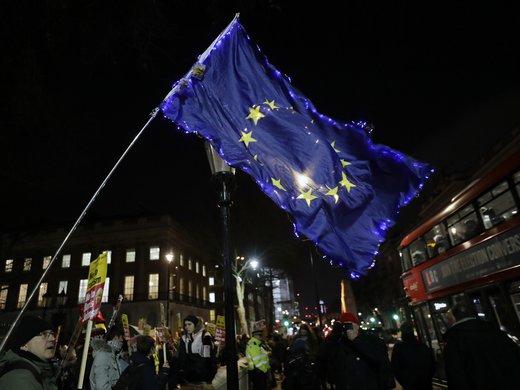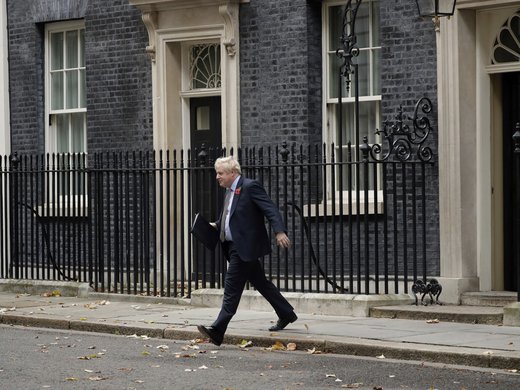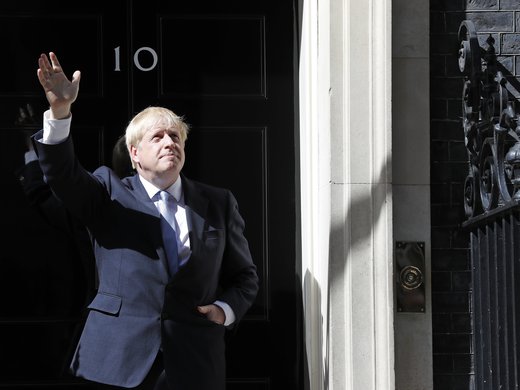The outcome of the British referendum to renounce membership in the European Union has left at least four disasters in its wake: a leadership vacuum in the United Kingdom, uncertainty about the future of European unification, a crisis in democratic traditions on both sides of the North Atlantic, and a burgeoning backlash against economic globalization. How can the damage be contained?
The economic and political effects in Britain are the least of the problem. The campaign to persuade British voters to keep the country in the EU was undermined by divisions within the governing Conservative Party, tepid and ineffectual leadership in the opposition Labour Party, and the longstanding populist yearnings fueled by the U.K. Independence Party. Even the leaders of the “leave” campaign expected the referendum to fail, and consequently they had no plan for how to capitalize on its success. The current result is chaotic uncertainty and the very real prospect of an economic stagnation that could last for several years. Eventually, however, the famous British resolve will certainly prevail. The idiosyncratic forces that made Brexit possible will be replaced by a new normalcy, and the country will establish a workable and positive relationship with the continent.
The threat to European unification is a larger issue, but Brexit could turn out to be a positive influence. The flip side of every crisis is opportunity. As practiced since the millennium, European unification has not been working. The rapid influx of new members has made the already cumbersome bureaucratic institutions nearly unmanageable. Monetary union without fiscal integration and control has proved to be frighteningly crisis-prone. The failure to find a humanitarian way to contain the intake of migrants and refugees was a trigger for Brexit and for other movements that are still developing, but the secular lack of European cohesion on a wide range of issues was the root cause. In the absence of the refugee crisis, some other trigger would surely have been pulled. Brexit makes the continuation of the EU’s muddling-through tactics unsustainable and thus might force Europe into a more realistic strategy.
The threat to democracy arises because of the disconnect between the established political leadership and the voting public. Some two-thirds of the U.K. House of Commons supported staying in the EU. Polls show that a majority of Labour Party members support Jeremy Corbyn’s party leadership, while some four out of five Labour members of parliament have expressed a lack of confidence. Throughout Europe, in reflection of widespread dissatisfaction with established political structures, fringe parties without viable governing abilities are on the rise. Across the Atlantic, the U.S. Republican Party is in total disarray over voters’ rejection of establishment candidates in favour of a dissident pseudo-populist who espouses policies at variance with most of the party’s recent platforms. These movements raise serious questions about whether democracy can deliver sustainable economic and cultural results without the leavening influence of effective leadership.
The fourth crisis aggravated by Brexit—the backlash against globalization—will have serious and long-lasting negative effects unless the leading democracies can overcome it. Globalization has been a gradually rising force for economic progress throughout the post-World War II era. Growth in output, incomes, and wealth has been led by growth in international trade. The number of countries that are able to finance expansion globally rather than relying only on domestic savings and external grants has grown steadily. The incidence of extreme poverty has been reduced by more than half, thanks in large part to the shift to openness in China, India, and other emerging markets. Despite the volatility and frequent setbacks associated with financial shocks, the aggregate global benefits of open trade and finance are indisputable.
The backlash has come because the benefits have not been widely shared. To the contrary, the concentration of wealth at the very top has long since reached the point of extreme disfunction. It cannot be justified by any logical argument, and it cannot be sustained in any democracy. When wages stagnate despite strong aggregate growth, when housing becomes unaffordable, when corporations are able to evade taxation of profits by moving operations and assets around the world in search of low rates, when the incomes of the very rich are taxed at the same or even lower rates as those of middle-income workers; when those and other pressures are seen to be deeply entrenched and getting worse, then a rejection of the prevailing order becomes rational and inevitable.
The negative implications of Brexit and related developments elsewhere are clear. The difficulty is in defining and then adopting effective solutions. Economic growth must be sustained while becoming more inclusive. Poverty and inequality must be reduced. Leaders must emerge who can define and express a vision for achieving those goals. Implementing appropriate policies will be a task that each nation state will have to attack in its own way, but a piecemeal approach will likely be ineffective.
The role of global institutions is to define the shared goals, identify best practices, and agree on an implementation strategy. To date, the key steering committee for global governance—the Group of Twenty advanced and emerging markets—has looked at inclusiveness and inequality only as peripheral issues. The World Bank and the IMF have paid more attention to distributional consequences, but they have not been given a mandate to place them at the top of the policy agenda. Until that happens, the type of popular rejection of leadership epitomized by the Brexit referendum is likely to continue.


